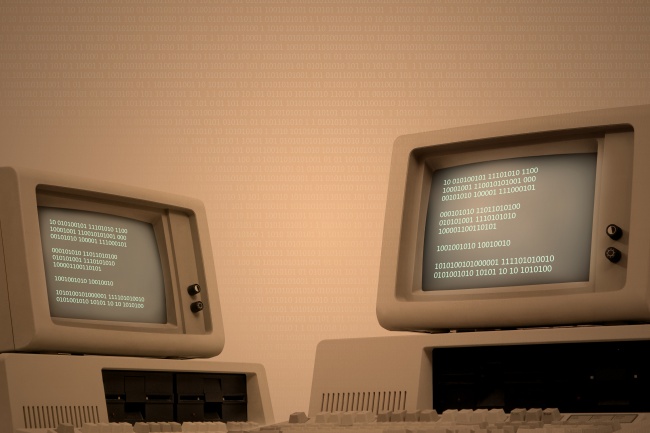Ways Machine Learning Is Impacting Top Industries Today
Though relatively new, Machine Learning (ML) is already causing significant disruption in various industries. A report by KD Nuggets shows that more than half of entrepreneurs have implemented ML strategies. Most of these entrepreneurs are leveraging machine learning to identify patterns from big sets of data. And analyzing enterprise data helps executives and business owners predict customer behavior and forecast market trends.
Guess what? Their efforts are paying off big time! Up to 35% of the respondents in the survey referenced in the KD Nuggets report said that their machine learning investments have resulted in better customer support. The result? Improved ROI in terms of both marketing and sales!

Top Beneficiaries of ML
We decided to find out who is benefiting the most, and the findings aren’t surprising. The world’s major industries, including education, healthcare, transportation, and marketing, are so far the biggest beneficiaries.
The following is a summary of how each of these industries has so far benefited from machine learning, complete with real-life examples.
- Education
We may have to wait a little longer to find out whether robots will take over from human teachers. Nevertheless, machine learning, with the help of Artificial Intelligence (AI), is already making inroads into the classroom.
Better still, learners and learning institutions know about this and are investing in the necessary equipment to make ML-backed education a reality. Initially, we only had laptops, desktops, and tablets in classrooms. But, thanks to machine learning and AI needs, we’re now seeing other devices such as voting machines, interactive smartboards, and multimedia presentations entering the classroom.
These devices are equipped with ML software to assist learners and teachers in different ways. For example, some machine learning software can design individual learning plans for each student to address the unique learner needs. Machine learning also allows teachers to find out about learning disabilities earlier through analyzing and compiling students’ work against known difficulties.
At a more fundamental level, we also have teachers using AI and ML to generate tests and assignments. A machine learning in education program is set to sift through hundreds of sources to pick critical questions to test mastery of a given subject.
- Healthcare
Healthcare is another area where innovative computer technologies are making an invaluable impact. Even though most diagnoses and medical prescriptions are still delivered in-person by the doctor, a lot of the work happening behind the scenes is now done or aided by computers.
Machine learning is one of the key technologies driving these changes. In many hospitals, for example, we now have machine learning algorithms comparing symptoms and genetic details to determine the causes of various medical conditions. We also have several healthcare facilities already using biometric sensors and massive databases to enable better diagnosis of challenging diseases. These machines are not only more accurate but also faster than humans.
Intuitive Surgical inc., for example, currently uses a robotic laparoscopic surgery system known as the da Vinci to perform specific minor procedures. In 2014, the system performed over 6,000 surgeries. Then, you have Lumiata, which is working round the clock to bring AI to predictive medicine. Lumiata’s ML program simultaneously looks at patient records, facility history, medical journals, and ongoing studies, among other data sources to predict short and medium-term patient health.
- Transport
Self-driving cars might not be in commercial use yet, but they are perhaps the best-known creation of machine learning and AI. The first self-driving car was developed by Google as early as 2009 and, according to Waymo (formerly the Google self-driving car project), has accumulated more than 300 years of driving experience in the last ten years. Surely, it’s only a matter of time before these cars grace our roads.
As we wait for that day, however, you can already see several ML applications in the form of smart cars. Tesla cars, for example, are equipped with an autopilot feature that allows you to see the vehicle in front of you. It also detects and flags potentially troublesome environmental conditions such as fog, rain, and dust and reacts accordingly. In the latest Tesla cars, the autopilot feature even helps drivers stay in their lane, maintain a safe speed, and slow down as necessary.
Gartner predicts that these technologies will completely revolutionize the transport industry. By 2020, we could have as many as 250 million smart cars on the roads. These smart cars will feature Advanced Driver Assisted Systems (ADAS) featuring things like camera vision systems, engine control, driver condition analysis, and so forth.
- Marketing
Finally, marketing is also reaping big from machine learning. A recent MIT study where 168 large companies were surveyed shows that over 76% of marketers are integrating ML technologies into their growth strategies.
Take an example of MarketMuse, a content marketing agency, which is heavily investing in ML and AI to help digital marketers determine the best topics. So far, they have ML software that goes as far as learning how to best cover a topic when blogging. Once you’ve created a list of topics, the software helps develop a comprehensive content plan. And if it finds gaps in the content strategy, it offers timely and relevant suggestions.
It’s not just in content marketing where ML is finding applications, though. If you’ve shopped on Netflix or Amazon recently, you’re likely to have encountered ML-powered marketing. Both Netflix and Amazon use machine learning to make recommendations based on past purchases and shopping histories. By looking at what you bought last time and your shopping patterns in general, the machine learning software for marketing purposes can near-correctly predict what you may need in the future.
- Retail
Finally, retail is one of the major industries, which can largely benefit from machine learning technologies. Big players and first-movers like eBay or Amazon have successfully integrated ML technologies across the entire sales process, from storage logistics to post-sale customer service, and continue doing developing them. At the same time, not only big companies or online retailers take advantage of the tremendous power of machine learning. Small and medium-sized businesses are joining the race too. So, how exactly machine learning is used in retail?
Predicting Customer Behavior
ML techniques allow estimating future buyers’ behavior based on data of previous behaviors. In this way, retailers can segment customers and practice personalized marketing which is considered more effective than general approaches. All in all, it leads to increased loyalty and retention of customers.
Social Media
The power of machine learning in social media is quite obvious for any industry. Retailers can get an understanding of what is driving engagement, traffic, and revenue. Tracking and analyzing social media data help retailers optimize the channel, target audience, content, and timing of their ad campaigns.
Digital Cataloguing
Online catalogs are another popular domain for ML implementation. They present products in the most appealing way and provide necessary information about them. In this way, machine learning can help:
- develop recommendation systems based on the previous search;
- estimate customers purchase ability;
- implement a visual search.
Chatbots and Virtual Assistants
Chatbots and different online assistants are getting extremely popular nowadays. They interact with customers and simulate a human conversation. This helps to provide added value at different levels: encouragement for extra purchases, personalization of customer experience, improvement of searching capabilities and etc.
Are You Ready?
As you can see from the above examples, machine learning is already here, and it’s impacting pretty much every industry. From education to transportation and healthcare to marketing, the technology is permanently transforming workplaces. And that’s before you mention finance, sports, and manufacturing where ML is helping enterprises increase efficiency while saving costs.
Are you prepared for the transformation? Are you ready to implement machine learning and take maximum advantage of it? United Perfectum has the equipment and personnel to help you lay the foundation as you prepare for the big takeoff. Contact us today to learn more.





